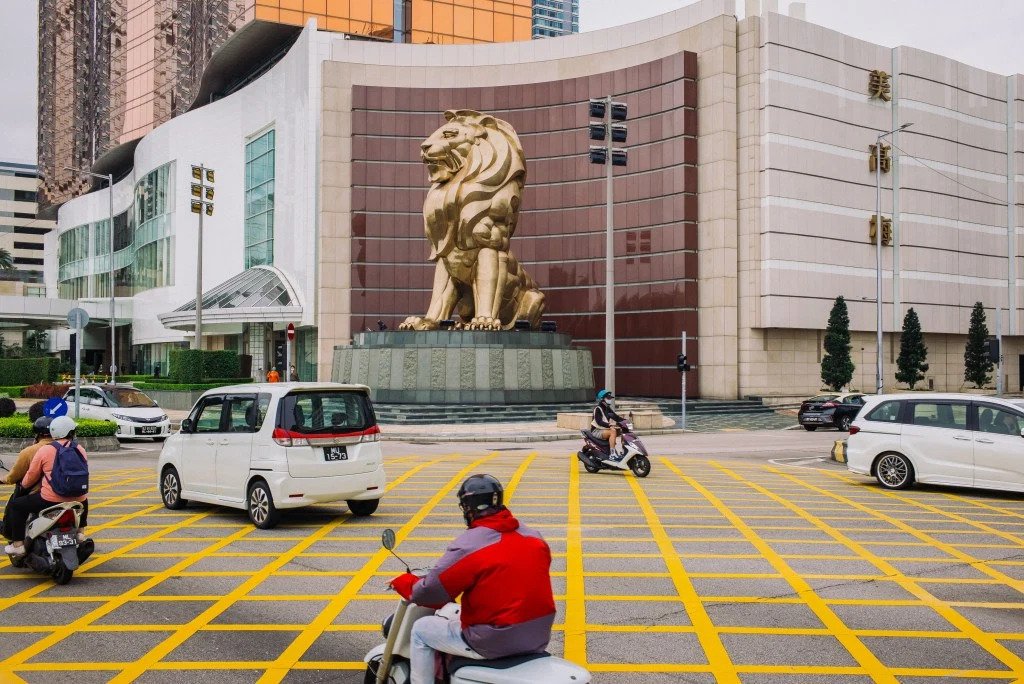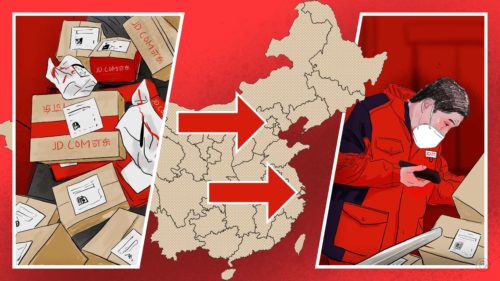Macau’s epidemic-stricken casino economy exposes a decade of failed policy

Photo by Billy H.C. Kwok (Bloomberg/Getty Images)
Macau’s casino-driven economy is in dire straits. If only it diversified when it had a chance.

For the past month, COVID-19 has slowed down countless economies around the world. But for Macau, “Asia’s Las Vegas,” it has also laid bare decades of unsustainable economic policy — and the failure of its leaders to make amends.
On March 1, the city’s Gaming Inspection and Coordination Bureau revealed the fallout from a 15-day closure that brought all 41 casinos to a standstill between February 5 and February 19. There was an 86% drop in revenue for the month, with total revenue settling at $389.6 million; the corresponding figure for February 2019 was $3.17 billion. Last month’s sum is one not seen in Macau for over 15 years, while share prices for casino operators plummeted worldwide.
COVID-19 has inadvertently exposed the flaws of many economies, but Macau’s casino-driven economy is in dire straits. Half of the city’s GDP — and four-fifths of the government’s revenue — is dependent on gambling, an industry that entails little technological development or productivity growth but employs one-fifth of the local population. In short, gambling has little knock-on effects for other industries in Macau while tying down a significant portion of the city’s labor.
Some casinos are more at risk than others. Sands China, owned by Sheldon Adelson, who is one of President Donald Trump’s most generous donors, operates six casinos and is, albeit by a slight margin, the largest casino operator in the highly-competitive Macau market. Although it has responded to COVID-19 with philanthropy, donating hundreds of thousands of masks to Macau’s residents, the Sands business model follows that of its parent company in Vegas.
“This high-leverage ‘Vegas Model’ means in the good times you can generate a high return on equity, but when the economy takes a downturn, as it did in 2014 and 2015, and the financial crisis before that, high-leverage is high-risk,” said Ben Lee, Managing Partner at iGamiX, a Macau-based gaming consultancy.
“We all know that Sands China was very close to insolvency back in the financial crisis.”
Should the scarce crowds in Sands’s casinos continue until the summer, the company’s only way out will be to sell off assets in other casino markets like Singapore to prop up the Macau hub. Cutting costs is no alternative — the government’s gambling regulatory body has ordered Sands China and all its competitors in Macau to hold onto local staff.
Macau’s dependence on the gaming sector has only increased over the years, to the point that President Xí Jìnpíng 习近平 used the 20th anniversary of the former Portuguese colony’s handover to China as an opportunity to push through more diversification policies, according to Reuters.
This represents a policy failure, one that has gone overshadowed by neighboring Hong Kong’s recent struggles. Hong Kong’s economy hit record-lows in 2019, with its first annual recession since the financial crisis.
But whereas Hong Kong’s dependence on the financial and banking sector hasn’t dragged the city down thanks to recent innovations in blockchain, digital banking, and fintech, Macau has much less to fall back on.
“The Macau government has been saying diversify over the last five to 10 years. But the operators, to their discredit, have not done so, just paid lip service,” said iGamiX’s Lee, adding that non-gaming revenues for casinos in Macau were many times lower than those in Vegas.
In many ways, the Macau government has also paid lip service to diversification by hinging the hopes of this policy on two mega-projects emanating from Beijing: Belt and Road (BRI) and the Greater Bay Area (GBA). Macau’s previous Chief Executive, Fernando Chui (崔世安 Cuī Shì’ān), made exhaustive references to the BRI throughout his term, looking to present Macau as the BRI’s launchpad into the entire Portuguese-speaking world.
But the grand rhetoric of Macau’s “historic connection to the Silk Road” has had few practical implications. Chui and his team subsumed anything they could under the BRI label, including dodgy traditional Chinese medicine and random industries like dentistry.
The GBA, in turn, has yet to do much for Macau’s non-gambling industries, which are technologically lagging behind Hong Kong and the mainland. Last December, I accompanied a Shenzhen entrepreneur to the qualifying rounds of a start-up competition hosted by the local government of Zhuhai, a mainland city on the Pearl River Delta near Hong Kong and Macau. The two teams from Macau had their pitches ripped apart by a panel of judges, and they finished bottom two out of a pool of 12. A Shenzhen entrepreneur won with a virtual reality 3-D image generator app while a team from Hong Kong came second with a wine storage business idea, while a Macau entrepreneur presented his all-in-one travel app with a flashy promotional video and slick Powerpoint that couldn’t conceal the fact that his idea was a knockoff of Expedia.
Beijing is acutely aware of Chui’s inability to nudge Macau toward the commercial hub he promised. By 2016, the Macau Forum, a body launched in 2003 to promote economic relations between Portuguese-speaking nations and China, went through some significant leadership changes. Xu Yingzhen was appointed secretary-general of the Forum despite not having any ties to Macau, a move interpreted by a 2017 op-ed in the Portuguese-language Daily Hoje Macau (The Macau Daily) as a sign that the central government saw the Forum as a disappointment.
Uncertainty looms on the horizon for the city held up as a paragon of One Country, Two Systems. Casino operators need to curry favor with the Macau government as they get ready to cast their bids for new gaming concessions that expire in 2022. Firing local staff at this stage, though the logical business decision, would be political suicide given the government’s need for locals to keep their jobs.
“We believe the expirations will be dealt with by the government using a pragmatic approach because a lot of locals are employed [by casinos],” said Colin Mansfield, a gaming sector analyst at Fitch Ratings, though he added that there was a risk that a new, seventh competitor might snatch some of the market share from the original six operators in the re-bidding process.
However, rumors are swirling among Macau’s gaming lawyers and analysts that Beijing might not only make the final call in 2022, but also use the concessions to hit back at the United States. Trump’s billionaire donor, Adelson, is the owner of Sands China. Some say there is a chance that Adelson could have his concession taken away if the Huawei problem isn’t settled, or if the U.S.-China trade war flares up once again.
“My personal belief is that the outcome [of the concessions] will be determined by Beijing through the China Liaison Office,” said gaming analyst Lee.





